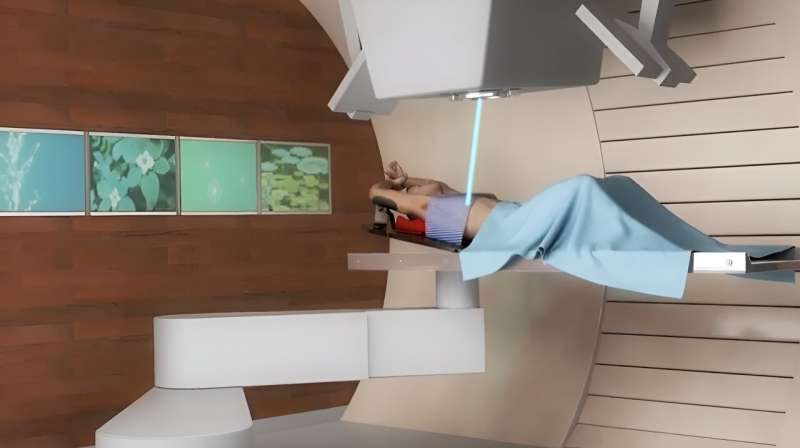This article has been reviewed according to Science X's editorial process and policies. Editors have highlighted the following attributes while ensuring the content's credibility:
fact-checked
peer-reviewed publication
trusted source
proofread
Study reveals proton beam therapy may shorten breast cancer treatment

In a randomized trial, published in The Lancet Oncology, Mayo Clinic Comprehensive Cancer Center researchers uncover evidence supporting a shorter treatment time for breast cancer patients.
The study compared two separate dosing schedules of pencil-beam scanning proton therapy, the most advanced type of proton therapy known for its precision in targeting cancer cells while preserving healthy tissue to reduce the risk of side effects.
Survival rates for breast cancer continue to improve due to advances in diagnosis and treatment, leading to increasing emphasis on reducing the long-term toxicity of cancer treatment, including radiotherapy.
Prior to this study, all patients treated with proton postmastectomy radiotherapy (PMRT) had received a conventional 25- to 30-day course delivered five days per week over five to six weeks. The researchers hoped to demonstrate that condensing the course of proton beam therapy, a form of particle therapy that could spare the heart and lungs from radiation damage, may result in a similar side effect profile.
Eighty-two patients with indications for PMRT, many of whom had prior breast reconstruction, were randomized to either conventional fractionation (fractions of radiation dose) administered in 25 days, or a condensed 15-day hypofractionated schedule.
With hypofractionation, a larger dose of radiotherapy is delivered with each treatment, allowing all radiotherapy to be completed in just three weeks. The investigators found that both conventional and hypofractionated proton therapy resulted in excellent control of the cancer while sparing surrounding normal tissue. Further, complication rates were comparable between the two study groups.
"The study provides the first prospective data supporting the use of shorter-course proton PMRT, including in patients with immediate breast reconstruction, and the first mature results of a randomized trial in the field of breast particle therapy," says Robert Mutter, M.D., a radiation oncologist and physician-scientist at Mayo Clinic Comprehensive Cancer Center.
"We can now consider the option of 15 days of therapy with patients based on the similar treatment outcomes observed as the longer conventional course. Of note, the short course actually resulted in reduced skin side effects during and after treatment."
Importantly, the researchers noted that the new schedule spares patients additional inconvenience, cost, and other burdens associated with the longer regimen. As there are a limited number of proton therapy facilities in the United States and the world, Dr. Mutter adds that demonstrating the safety and feasibility of the shorter treatment course could result in greater access to proton beam technology for difficult-to-treat breast cancer cases.
The researchers say additional investigation into the optimal PMRT dose and fractionation is warranted. The team plans additional research, investigating the delivery of PMRT in as few as five days.
"Ultimately, our goal is to personalize radiotherapy based on tumor biology," Dr. Mutter says. "We want to identify the best possible radiotherapy schedules or drug-radiotherapy combinations to eliminate cancer while minimizing side effects."
More information: Robert W Mutter et al, Conventional versus hypofractionated postmastectomy proton radiotherapy in the USA (MC1631): a randomised phase 2 trial, The Lancet Oncology (2023). DOI: 10.1016/S1470-2045(23)00388-1 , www.thelancet.com/journals/lan … (23)00388-1/fulltext



















